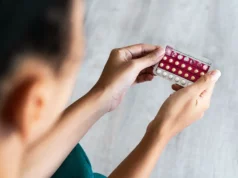Getting pregnant is no longer the preserve of those in their 20’s. In fact there is an increasing trend for women to wait until they are in their 30’s or even 40’s before having a baby.
Unfortunately there are some complications associated with having a baby after 35. This doesn’t mean it is impossible but it is important to be aware of the issues. It can be exceptionally frustrating to keep trying month after month without success.
After the age of 35 it is a good idea to visit a health professional and get yourself checked before you start trying. You can click here to learn more about what processes may help you.
The Issues
There are a range of issues linked with trying for a baby after 35. These include:
Ovulation
Every woman has all the eggs they will ever use from when they are born. Of course they are not all ready at the same time; this is why you ovulate every month.
However after the age of 35 ovulation can become less predictable. There will be some months when eggs are not released and the quantity and quality will be in decline.
It is important to take a supplement that has myoinositol, melatonin and folic acid. These are known to help improve egg quality.
Surgery & Infection
If you have had any surgery or infection in the vicinity of your fallopian tubes or uterus it is possible that scar tissue has formed which will affect the ability for your body to produce and distribute eggs.
A scan can help you to identify if this could be an issue for you.
Endometriosis
Every month during menstruation the endometrial lining must be pushed out of the uterus; ready for the next cycle.
However, linings already outside of the uterus are not removed by the body naturally. Over time these linings will become aggravated; especially when you ovulate. They can then bleed or cause intense pain while creating more scarring inside your body.
The growth of these linings can cause intense pain and infertility. In fact it is the 3rd leading cause of infertility in the US.
It is likely that the lining will stick in most women, but if you have immune system issues it is highly possible that you’ll develop endometriosis.
Fibroids
These are masses that grow inside your uterus. They are generally not detected as they are painless and non-cancerous.
These masses do not cause any issue in some women but in others you’ll find the increased pressure on your uterus restricts its ability to complete the normal ovulation cycle.
Other Health Issues
There are a wide range of different health issues that can cause problems with getting pregnant at any age. These include high blood pressure and diabetes which are more common as you age.
Your medical professional can advise you if you are likely to be less fertile because of these types of conditions.
You should also be aware that getting pregnant is still only the first step; Women over 35 have a 30% chance of miscarrying.
Improving Your Chances
Fortunately there are a few things that you can do to help you get pregnant after 35.
Visit Your Health Professional
It’s a great idea to schedule an appointment and have yourself checked over. This will give you the opportunity to review the medical issues you have had and discuss any issues you feel are relevant.
Be Aware
It is vital that you are aware that it can take up to 2 years for women over 35 to become pregnant. It is difficult to stay positive but you need to.
Be Healthy
You probably already know that smoking and drinking are not good for getting pregnant or your unborn baby.
However, you can go a step further than this. Take a look at your current diet and even your body weight. The healthier you are the more likely it is that you will be fertile enough to have the baby you desire.
Record Your Stats
Keep a record of your monthly cycles and use ovulation tests to calculate the best time to have sexual intercourse. This can help to increase your chances of success. The more familiar you are with your cycle the easier it will be for you to know if something is not right.
Get Help
Finally many couples need to turn to the doctor for help. You may need IUI, IVA or even ICSI. By talking to your doctor you can find out what the issue is and how best to deal with it.












